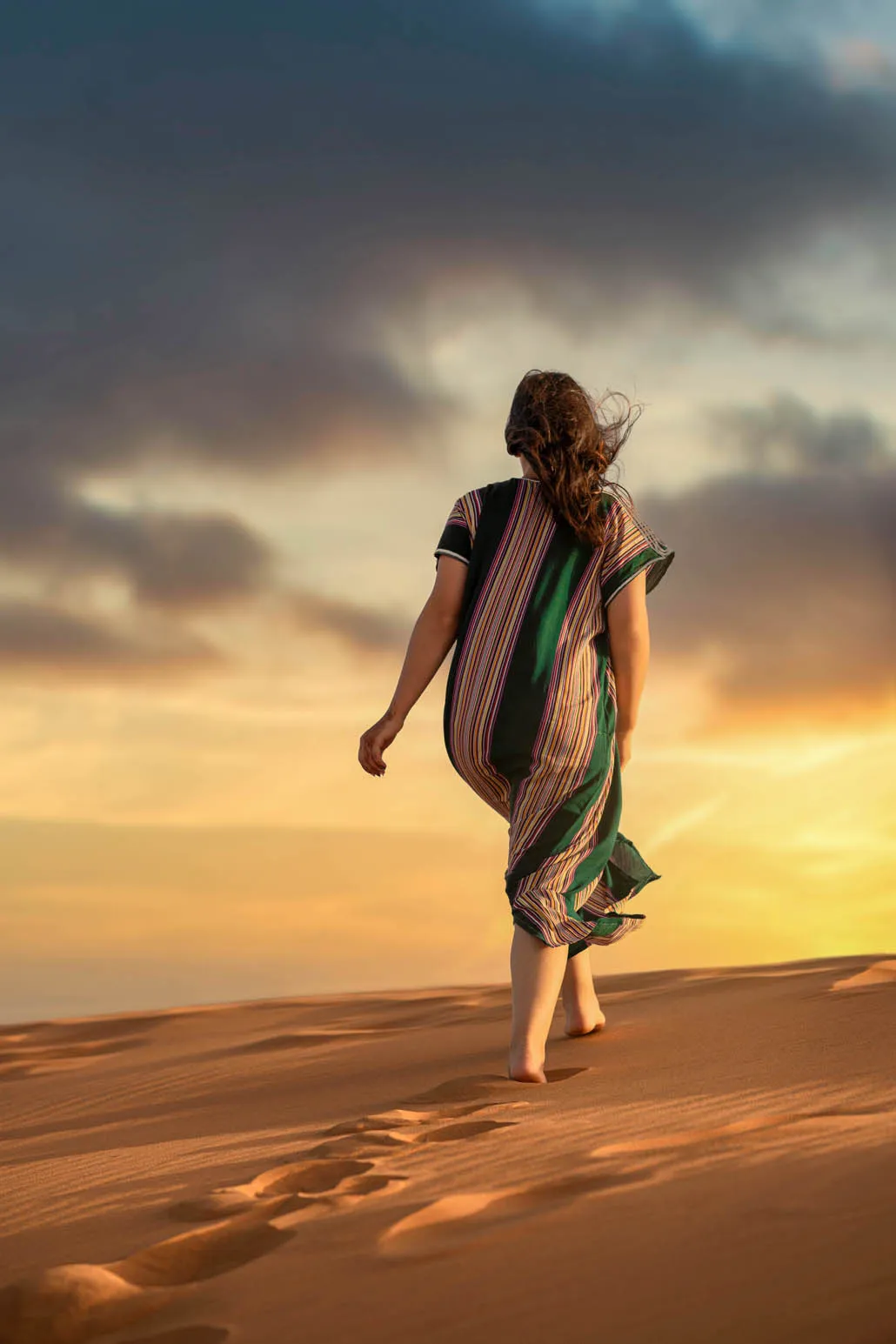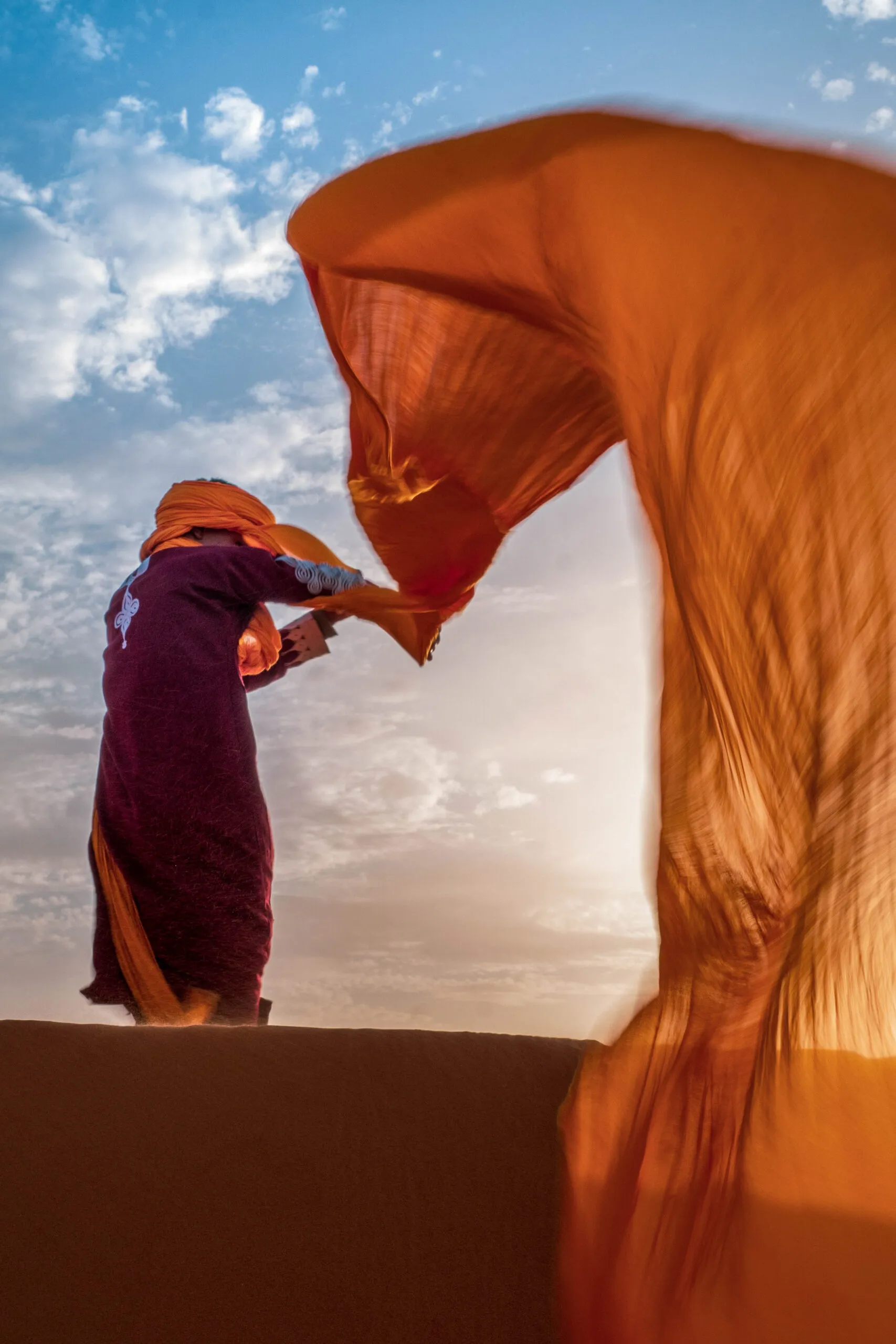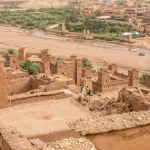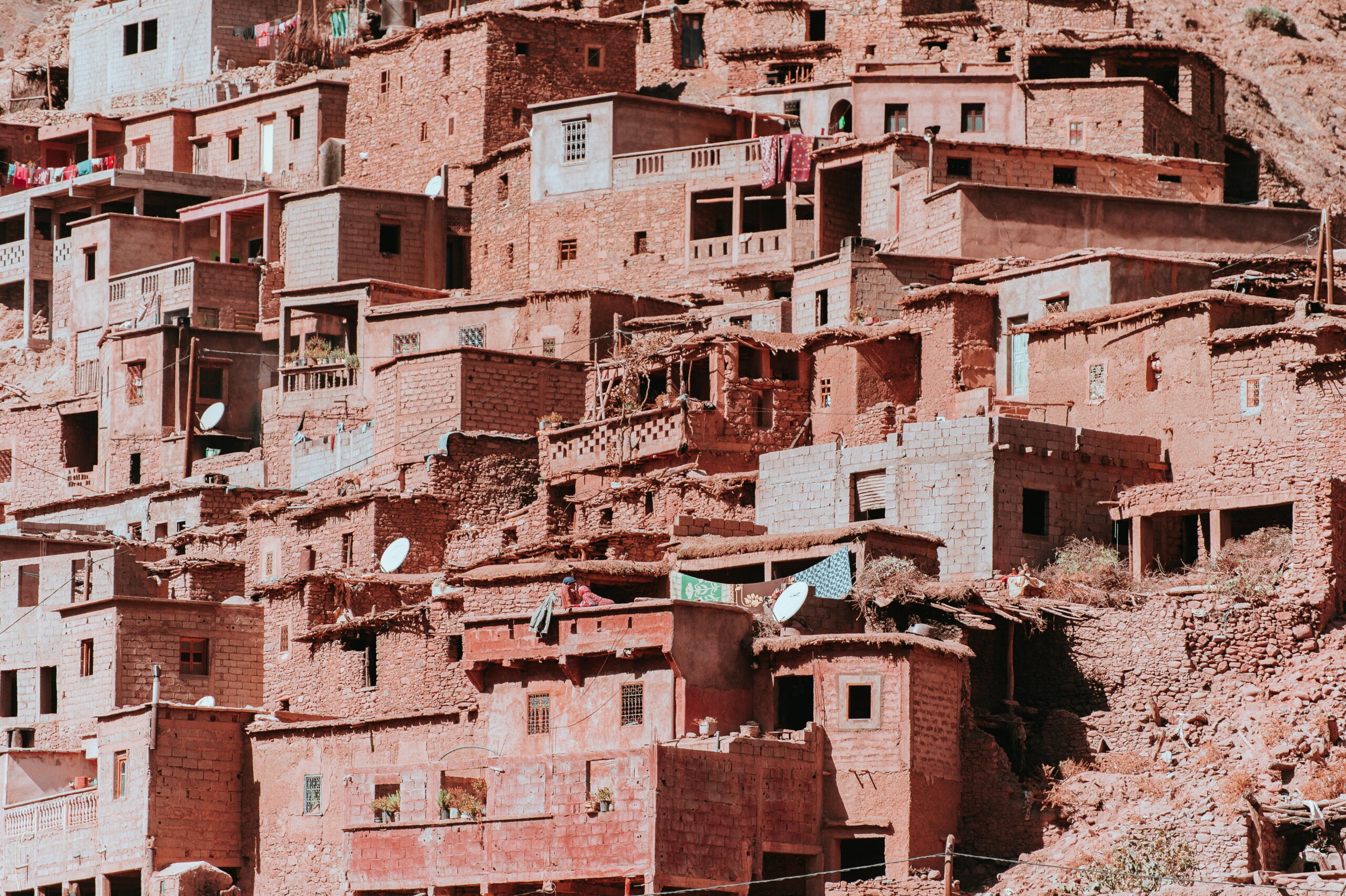
Introduction to Casablanca
Casablanca, often recognized as the economic and cultural heart of Morocco, embodies a striking fusion of modernity and tradition. This coastal city, situated along the Atlantic Ocean, has evolved into a vibrant metropolis, showcasing the dynamic spirit of Morocco. Historically, Casablanca was a modest Berber settlement known as Anfa. It gained prominence under the Phoenicians, Romans, and eventually the Portuguese, who named it Casa Branca. However, its transformation into the bustling urban center we see today began under French colonial rule in the early 20th century.
The city’s strategic location and natural harbor have long made it a pivotal point for trade and commerce. Post-independence, Casablanca continued to expand, becoming a magnet for economic activities and cultural exchanges. Today, it stands as Morocco’s largest city and a crucial financial hub, hosting the headquarters of numerous multinational corporations and banks. The Port of Casablanca is one of the largest artificial ports in the world, further cementing the city’s role in international trade.
Beyond its economic prowess, Casablanca is a cultural melting pot. The city is home to a diverse population, reflecting Morocco’s rich tapestry of Arab, Berber, and European influences. This diversity is evident in Casablanca’s architecture, cuisine, and cultural festivals. Landmarks such as the Hassan II Mosque, with its towering minaret, symbolize the city’s blend of tradition and modernity. Meanwhile, the Art Deco buildings in the city center harken back to its colonial past, offering a glimpse into the architectural evolution that defines Casablanca.
In essence, Casablanca is a testament to Morocco’s ability to harmonize its historical roots with contemporary advancements. It is a city where ancient traditions coalesce with the pulse of modern life, making it a fascinating destination for those seeking to experience urban sophistication in a cosmopolitan hub.
Iconic Landmarks of Casablanca
Casablanca, Morocco’s largest city and economic hub, is renowned for its blend of modernity and tradition. The cityscape is adorned with a variety of iconic landmarks that serve as testament to its rich cultural heritage and architectural splendor. Among these, the Hassan II Mosque stands out prominently. Completed in 1993, it is the largest mosque in Africa and the seventh largest in the world. Perched on the edge of the Atlantic Ocean, this magnificent edifice boasts the world’s tallest minaret, soaring to 210 meters. It is a marvel of Moroccan craftsmanship, with intricate mosaics, marble floors, and a retractable roof that allows worshippers to pray under the open sky.
Casablanca’s city center is a treasure trove of Art Deco architecture, reflecting the city’s colonial past. Strolling through the streets, one can admire the elegant facades and geometric designs that characterize this style. The Boulevard Mohammed V, in particular, is lined with buildings that showcase the fusion of traditional Moroccan elements with Art Deco aesthetics. This architectural journey offers a glimpse into the city’s evolution during the early 20th century, when Casablanca was a burgeoning port city under French rule.
No visit to Casablanca is complete without exploring its historic medina. Unlike the medinas of Fez or Marrakesh, Casablanca’s old town is relatively small but equally charming. The labyrinthine alleyways are filled with bustling souks, where vendors sell everything from spices and textiles to traditional Moroccan crafts. The medina’s heart is the Place Mohammed V, a lively square surrounded by grand buildings, including the Palace of Justice and the Wilaya, a fine example of the city’s Art Deco heritage.
These landmarks not only define Casablanca’s skyline but also encapsulate its unique blend of the old and the new. They offer visitors a profound insight into the city’s historical evolution and its role as a beacon of urban sophistication in Morocco.
Exploring Casablanca’s Modern Architecture
Casablanca, Morocco’s largest city and economic powerhouse, presents an intriguing blend of contemporary and traditional architectural styles. This dynamic urban landscape showcases the city’s growth and its aspirations to cement its status as a global business hub. Among the most notable modern structures is the Twin Center, a pair of skyscrapers that have become an unmistakable landmark. Standing at 115 meters, these towers house a mix of offices, shops, and luxury apartments, symbolizing Casablanca’s economic vitality and cosmopolitan flair.
Another architectural marvel is the Casablanca Finance City Tower, which epitomizes the city’s ambitions as a financial hub. This sleek, 28-story structure is a testament to modern design, featuring state-of-the-art facilities that cater to the needs of international businesses. The tower’s strategic location in the heart of the city underscores Casablanca’s role as a pivotal player in the economic landscape of Africa.
In addition to these commercial icons, Casablanca boasts several upscale residential areas that reflect its modern architectural ethos. Neighborhoods like Anfa and Ain Diab are home to contemporary villas and high-end apartments, characterized by clean lines, expansive windows, and elegant finishes. These residential developments not only offer luxurious living spaces but also contribute to the city’s sophisticated urban fabric.
The juxtaposition of these modern structures with Casablanca’s traditional elements, such as the Hassan II Mosque and the medina, creates a unique architectural tapestry. This blend of old and new is a visual representation of the city’s evolution, balancing its rich heritage with its forward-looking ambitions. As Casablanca continues to grow and attract international attention, its modern architecture stands as a testament to its dynamic and progressive spirit.
Savoring World-Class Cuisine
Casablanca, Morocco’s bustling metropolis, is not only a cultural and economic hub but also a culinary haven that caters to a diverse range of palates. The city’s gastronomic landscape is a delightful fusion of traditional Moroccan flavors and international cuisines, offering something for every food enthusiast. From humble street food vendors to opulent high-end restaurants, Casablanca’s eateries reflect the city’s cosmopolitan spirit.
The traditional Moroccan cuisine in Casablanca is characterized by its rich and aromatic flavors. Tagine, a slow-cooked stew named after the earthenware pot in which it is prepared, is a must-try. Made with a variety of ingredients such as lamb, chicken, vegetables, and a blend of spices, each bite of tagine offers a taste of Moroccan heritage. Another staple is couscous, often served with vegetables and meat, which has become a symbol of Moroccan hospitality. Pastilla, a savory-sweet pie made with layers of thin pastry, pigeon meat (or chicken), and a dusting of powdered sugar, is an exquisite dish that perfectly encapsulates the intricate nature of Moroccan cuisine.
Casablanca’s culinary scene is not limited to traditional dishes. The city’s cosmopolitan nature is reflected in its diverse food offerings, which include French, Italian, Spanish, and Asian cuisines. High-end restaurants like La Sqala, located in a historic fortress, provide a luxurious dining experience with a menu that blends Moroccan and Mediterranean flavors. For those seeking a more casual dining experience, the food stalls at the Marché Central offer a variety of fresh seafood and local delicacies that are both affordable and delicious.
Additionally, Casablanca’s street food vendors offer an authentic taste of the city. From savory snacks like briouats, small pastries filled with meat or cheese, to sweet treats like msemen, a flaky, buttery flatbread, the street food scene is vibrant and dynamic. These vendors provide a unique opportunity to experience the everyday flavors that locals cherish.
In Casablanca, food is more than just sustenance; it is an integral part of the city’s identity and a reflection of its rich cultural tapestry. Whether indulging in traditional Moroccan dishes or exploring international flavors, the city’s culinary offerings are sure to leave a lasting impression on any visitor.
Shopping in Casablanca
Casablanca, known for its urban sophistication, offers a diverse and vibrant shopping experience that caters to both traditional and modern tastes. The city boasts a range of shopping destinations that highlight its unique blend of cultural heritage and contemporary lifestyle. One of the premier shopping spots is the Morocco Mall, Africa’s second-largest shopping center. Here, visitors can indulge in an extensive selection of high-end fashion, international brands, and luxury items. The mall also features an aquarium, an indoor ice rink, and a variety of dining options, making it a complete entertainment destination.
Another notable shopping venue is Anfa Place Shopping Center, located along the scenic coastline. Anfa Place offers a more relaxed shopping experience with a mix of retail stores, cafes, and restaurants. It is an excellent spot for those looking to enjoy a peaceful shopping day by the sea while exploring a variety of local and international brands.
For those interested in traditional Moroccan goods, the bustling Central Market, also known as Marché Central, is a must-visit. This vibrant marketplace is the heart of Casablanca’s traditional commerce. It offers a wide range of handmade crafts, spices, fresh produce, and local delicacies. The Central Market is an excellent place to experience the hustle and bustle of Moroccan daily life and to find unique souvenirs that capture the essence of the country’s rich culture.
Whether you are looking for contemporary fashion, luxury brands, or traditional Moroccan crafts, Casablanca’s shopping scene has something to offer for everyone. The city’s blend of modern malls and traditional markets provides a unique shopping experience that reflects its cosmopolitan nature and cultural diversity.
Nightlife and Entertainment
Casablanca’s nightlife is a testament to its reputation as Morocco’s cosmopolitan hub, offering a dynamic array of entertainment options that cater to both locals and tourists. The city comes alive after dark, with an eclectic blend of venues that showcase its urban sophistication. From chic lounges to energetic dance clubs, Casablanca’s nightlife scene caters to diverse tastes and preferences.
For live music enthusiasts, venues like Le Casablanca Hotel and La Bodega offer regular performances by local and international artists, providing an intimate setting to enjoy a variety of genres. These spots are popular among those seeking a more relaxed yet engaging evening. Dance clubs such as Sky 28 and The Brooklyn Bar are the go-to places for those looking to experience the city’s vibrant club scene, where international DJs set the stage for memorable nights.
Casablanca’s nightlife isn’t limited to music and dance. The city also boasts a rich cultural scene with several theaters and cinemas. The Théâtre Mohammed VI and the Megarama Cinema are notable for their diverse programming, ranging from local Moroccan productions to international films and performances. These venues offer a glimpse into the city’s cultural heartbeat, reflecting its blend of tradition and modernity.
Cultural events and festivals further enrich Casablanca’s entertainment landscape. Events such as the Jazzablanca Festival and the Festival de Casablanca draw crowds from around the world, celebrating music, art, and culture in the heart of the city. These events highlight Casablanca’s role as a melting pot of cultures, where modern urban life meets rich cultural heritage.
The nightlife in Casablanca is a reflection of its cosmopolitan nature, seamlessly blending contemporary urban experiences with traditional Moroccan charm. Whether you’re seeking a lively night out or a cultural excursion, Casablanca offers a myriad of options that ensure an unforgettable experience for every visitor.
Cultural Immersion in Casablanca
Casablanca, often seen as Morocco’s cosmopolitan hub, offers a profound cultural immersion for those keen to explore its rich heritage. The city stands as a bastion of Moroccan traditions, seamlessly blending the old with the new. One of the prime venues to begin this cultural journey is the Villa des Arts. This art gallery, nestled in the heart of Casablanca, is a treasure trove of contemporary Moroccan art. It not only showcases the works of established artists but also provides a platform for emerging talents, making it a vibrant space for artistic expression.
Another essential stop is the Abderrahman Slaoui Museum, which houses an eclectic collection of Moroccan artifacts. From vintage posters and jewelry to intricate glasswork, the museum offers a window into the country’s artistic evolution. The displays are meticulously curated, reflecting the diverse influences that have shaped Moroccan art over the centuries.
Cultural festivals are another avenue through which Casablanca’s traditions come to life. Events such as the Festival of Casablanca and the Jazzablanca Festival are pivotal in celebrating the city’s cultural dynamism. These festivals not only feature local and international music but also include art exhibitions, workshops, and culinary experiences that provide a holistic cultural immersion.
Understanding local customs is also integral to appreciating Casablanca’s heritage. The city’s bustling markets, such as the Central Market, offer an authentic glimpse into Moroccan daily life. Here, visitors can observe traditional craftspeople at work, from potters and weavers to artisans specializing in leather goods and jewelry. This hands-on experience provides a deeper understanding of the meticulous craftsmanship that is a hallmark of Moroccan culture.
In essence, Casablanca’s cultural landscape is a mosaic of experiences that celebrate the city’s rich history and contemporary vibrancy. Whether through art galleries, museums, or cultural festivals, visitors are invited to delve into the traditions that make Casablanca a unique and captivating destination.
Practical Tips for Visiting Casablanca
When planning a visit to Casablanca, timing can significantly impact your experience. The best time to visit Casablanca is during the spring (March to May) and autumn (September to November) when the weather is mild and pleasant, making it ideal for sightseeing and outdoor activities. Summers can be quite hot, while winters are relatively mild but can be rainy.
Casablanca offers diverse transportation options to help you navigate the city with ease. The Mohammed V International Airport is the main gateway, with numerous flights connecting to major global cities. Once in the city, you can rely on an extensive network of buses, trams, and taxis. The tram system is modern and efficient, covering major areas of the city, while taxis are readily available but it’s advisable to agree on a fare beforehand or ensure the meter is used.
Safety is a priority for any traveler, and Casablanca is generally a safe city. However, like any large metropolitan area, it’s crucial to stay vigilant, especially in crowded places and tourist hotspots. Keep your belongings secure, avoid displaying valuables, and be cautious when withdrawing money from ATMs. At night, it’s best to stick to well-lit and populated areas.
Understanding local etiquette can enhance your Casablanca experience. Moroccan culture places a high value on respect and politeness. Dress modestly, particularly when visiting religious sites, and always ask for permission before taking photos of people. A simple greeting in Arabic, such as “Salam Alaikum” (peace be upon you), can go a long way in earning goodwill.
Accommodation options in Casablanca cater to various budgets and preferences. For a luxurious stay, consider the Four Seasons Hotel Casablanca or the Sofitel Casablanca Tour Blanche, both offering exceptional amenities and services. Mid-range travelers can opt for hotels like the Kenzi Tower Hotel, while budget-conscious visitors might find comfort in guesthouses or hostels such as the Hôtel Boustane.
By keeping these practical tips in mind, you can make the most of your visit to Casablanca, ensuring a smooth and enjoyable journey in this vibrant cosmopolitan hub.







